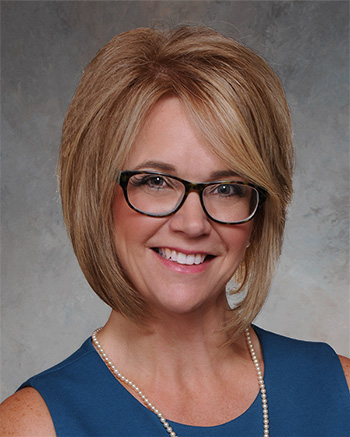July 16, 2023
Enhancing Efficiency to Reduce Wait Times and Optimize Resources
- by Shannon DeConda, Partner, Founder and President of NAMAS
Many practices are experiencing a decrease in patient-per-hour access and therefore are in need of cost containment that does not impact patient care.
Modernizing the delivery model can help address this issue through enhanced efficiency that will, in turn, reduce wait times, streamline clinical workflows, and optimize resources to improve efficiency. The following are common areas for improvement for healthcare providers to consider.
Increased Patient Interaction
By placing the patient at the center of the care plan and building a deliverable model around their individual needs, the patient is no longer solely reliant on a singular in-person visit to solve their healthcare needs. The result of this integration is increased patient interaction which leads to higher patient satisfaction yielding better outcomes.
Optimized Care Delivery
As a new delivery model is employed, scheduling crises with high-volume physicians eases. This affords the physician access needed to service the health challenges of their patient population while the care team, under their direction, is managing non-acute care. Physicians are then able to have a primary focus on patients with an increase in chronic disease and aging populations through increased availability for additional appointment scheduling and direct care of moderate to high complexity interval follow-ups.
Sustenance & Growth
Modernizing the delivery model incorporates a care team approach through reimbursable services such as telehealth and chronic care management. In 2023, the average physician lost $9-12k in E/M reimbursement alone, proving for the first year in healthcare that the E/M visit may no longer be a single sustainable delivery of patient care. CMS advises, in the published Chronic Care Booklet through MLN that implementation of chronic care management will assist physicians in patient management, improvement of patient outcomes, as well as growth and performance of their practice.
Having the Right Mix
Each practice, based on specialty, will need to find the right “ratio” of televisits to E/M visits for those patients whose current medical need does not drive the complexity for in-person interaction. However, the convenience that telehealth can afford the average consumer of healthcare should outweigh the desire for traffic, waiting rooms, and running behind schedule in a freezing exam room. The key will be to meet the patient where they are on a technology level to assist with this interaction. Also, note that post-PHE, a HIPAA-compliant platform must be used, as Terry Fletcher discusses in her blog, defining the 90-day transition period. Therefore, proper planning for the role of telehealth will be required.
Your Care Team
Resist the temptation to outsource chronic care management services. The purpose of modifying the delivery model is two-fold. 1) Sustain the practice, and adding an outsourcing arm could minimize this effort. 2) Increasing patient interaction to yield better outcomes, and who better to perform this function than the staff your patients are already familiar with?
In conclusion, changing the way your practice delivers care to patients may not happen overnight, but it won’t happen at all without a proper plan, implementation strategy, and proper execution. CMS has provided the reimbursable services to create the change; it’s up to you to take the first steps.
Changing the way your practice delivers care to patients may not happen overnight, but it won’t happen at all without a proper plan, implementation strategy, and proper execution.
If you would like guidance on these areas or other matters related to the healthcare industry, our executive contacts are available to assist. Contact Shannon DeConda via email at [email protected], call 800-635-4040, or visit our website at www.doctorsmanagement.com to learn more.

Shannon DeConda, CPC, CEMC, CEMA, CPMA, CRTT
Partner, DoctorsManagement, LLC
& Founder, NAMAS (National Alliance of Medical Auditing Specialists)
About DoctorsManagement
Founded in 1956, DoctorsManagement, a full-service healthcare consulting firm, helps practices of all sizes reduce compliance risks, increase physician practice profits, improve patient satisfaction and employee morale as well as reduce stress for physicians, managers, and staff. Our firm uses strategies that have been proven over five decades of experience and gives clients access to a team of nationally recognized industry experts in practically every area of medical practice management, including compliance, healthcare analytics, office management, coding, auditing, financial and accounting services, patient retention, human resources, and more.
























